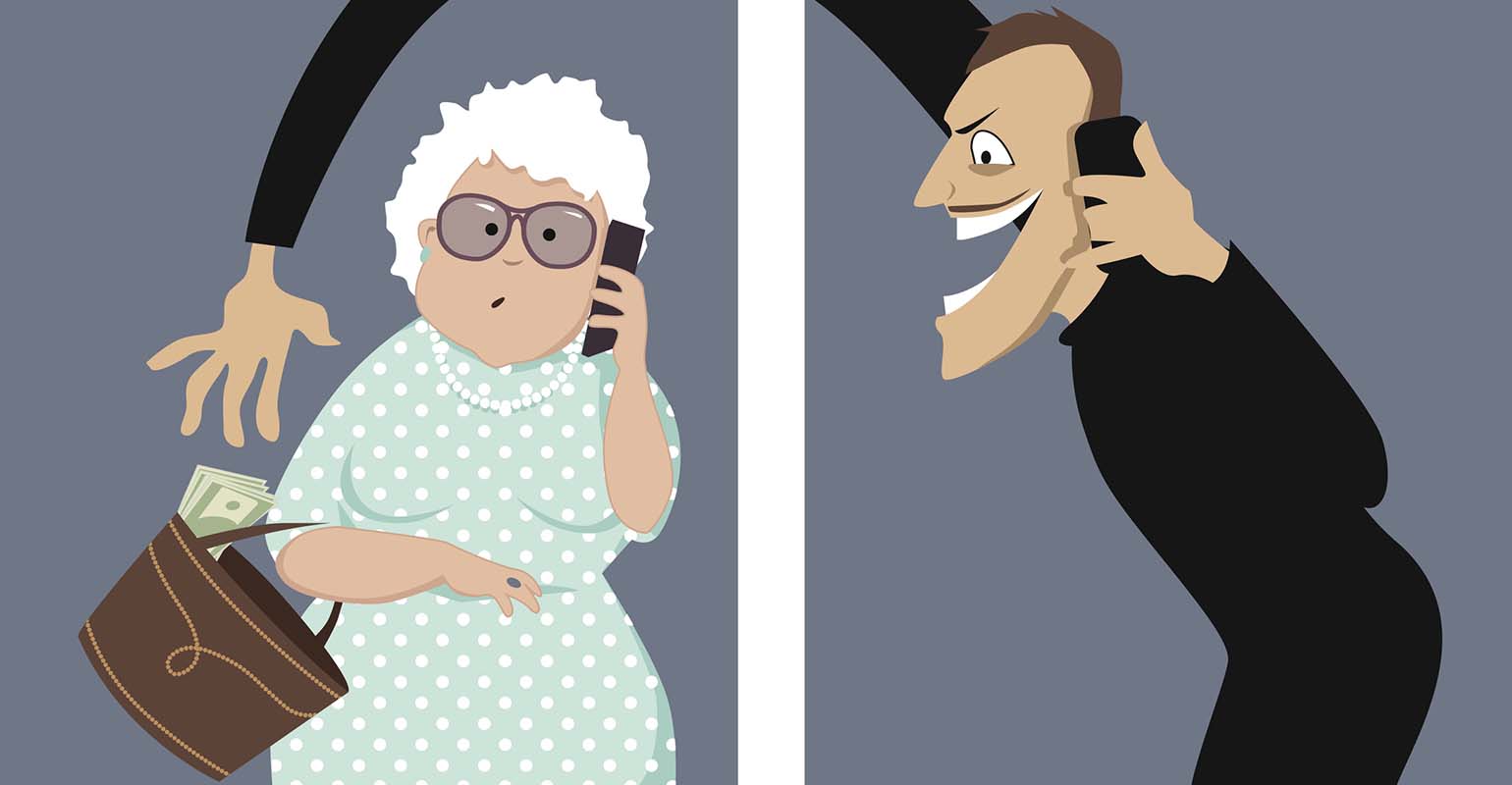Unfortunately, seniors are often the targets of scams looking to cheat them out of their money—often to the tune of tens of thousands of dollars. Although it’s been around for years, in recent months, there’s been a resurgence in the number of seniors falling victim to the “grandparent scam.”
Typically, the “grandparent scam” works like this: your client gets a call from someone pretending to be their grandchild. This individual explains that they’re in trouble and need money immediately. Perhaps they’re in jail and need money for bond or they’re stuck in a foreign country and need money to get out. Typically, the caller will include enough detail to make the story seem realistic. The “grandchild” will often ask your client not to tell their child (their parent) that they’re in trouble. They ask your client to wire money to a specific location or to give it to a third party, who’s usually someone posing as a lawyer or police officer. Once your client wires the money, the scammers break off all contact—usually making it impossible to recover their losses.
There are many ways these scammers choose their targets. They may purchase “lead lists” with information about older individuals or individuals they can get lots of personal information about. Often, scammers peruse social media to find information about potential targets, such as whether they have grandchildren or how old they may be.
How to Handle
The first and most important step for your client to take is not to panic if they get this type of call. Often the scammers call in the middle of the night, when your client may not be thinking clearly and may be more likely to believe what they hear. Advise your client to always verify the individual’s identity by asking questions someone else couldn’t answer—such as the name of their first pet. Call other family members to see if they’re heard from the grandchild—or even try to call the grandchild’s personal telephone to see if they’re okay. In no circumstances should your client send money until they’re absolutely positive that their grandchild is in trouble and that the money is going to the correct party.
If your client realizes they’ve been scammed after they’ve sent money but before it’s been picked up, they may be able to retrieve it. Unfortunately, if the money has already been picked up, it’s most likely gone for good—along with the scammers who took it.
Protection Tips
To prevent their email and computer from being hacked, advise your clients to use a firewall and anti-virus/anti-spyware software. They shouldn’t open email attachments from strangers or even from friends and family when the attachment seems strange.
Clients should make sure all of their social media accounts are private, so that scammers can’t see their personal information. And if your client receives a telephone call from a number they don’t recognize, it may be best to screen the call until they determine it’s legitimate.


